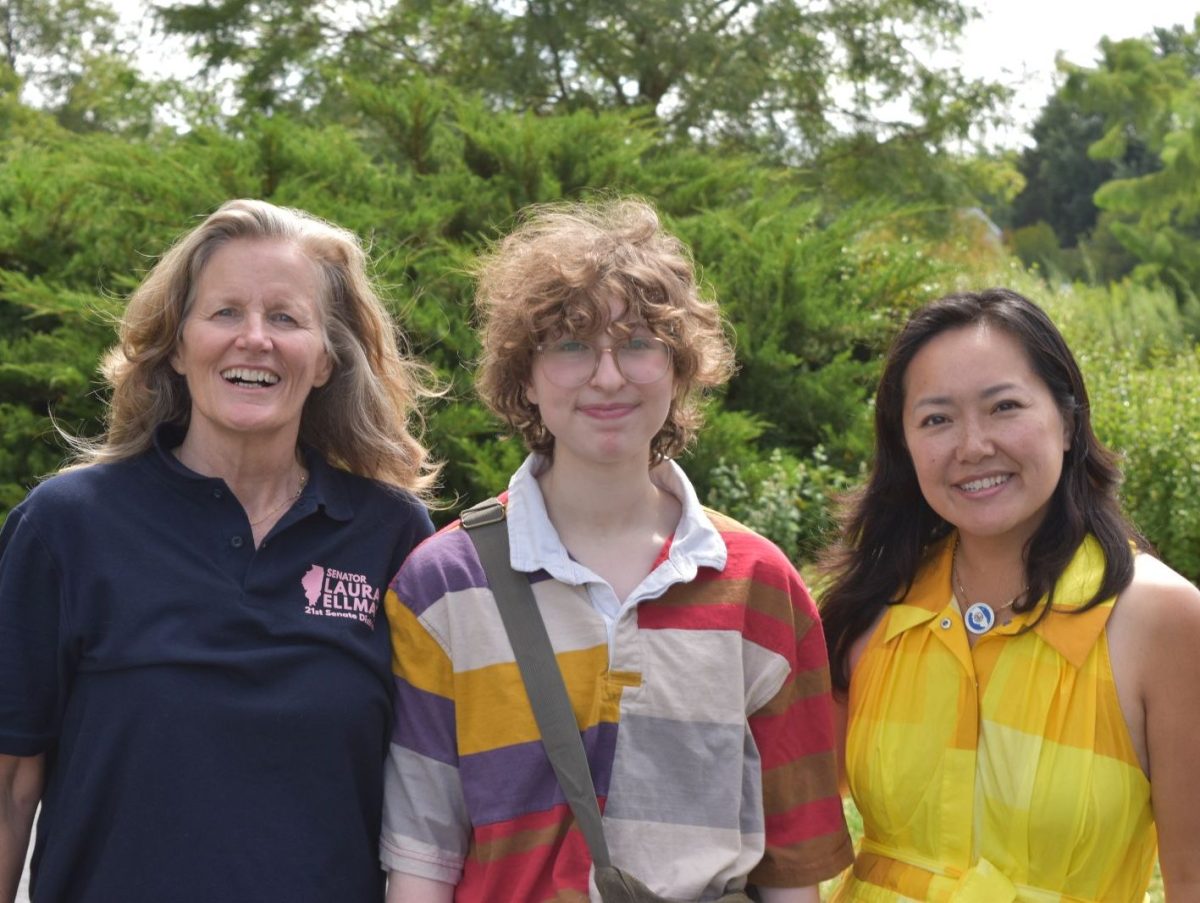Our world faces a challenge: climate change.
Central senior Iris Shadis-Greengas aims to combat this with her Illinois Global Scholar Capstone project, drafting a bill requiring climate change education in K-12 public schools.
Illinois’ first climate change education bill, signed into law by Gov. J. B. Pritzker, mandates the incorporation of climate change education from not just scientific, but also social and political perspectives in public K–12 schools by 2026.
“We basically said that these are climate change skills that everyone should have,” Shadis-Greengas said. “And then we wrote different aspects [of climate change] that we wanted students to know, like some of the human-caused aspects and environmental apects.”
The idea for this bill originated from the research done for Central’s Capstone class.
“Students have to come up with a compelling question related to a global issue that is actionable and set in a specific global context,” said Central social studies teacher Seth Brady, who teaches the Humanities Capstone class and helps students as they complete their project. “They conduct research, connect with experts, and have to come up with a sort of conclusion which leads to a [project] that must effect measurable change.”
Rather than just encouraging individual action, the bill is meant to tackle the root cause—a lack of awareness about climate change.
“I looked at 12 different sources that lead me to the understanding that our education about climate change is not very good, and because of that, [many] people in the U.S. don’t really care about it that much,” Shadis-Greengas said. “They don’t realize how serious climate change is, and the only way to teach them how serious [it is] is just by making sure they have to learn about it [in school].”
Shadis-Greengas’ version of the bill combined the scientific, social and political aspects of climate change education. Eventually, her bill was combined with a similar climate change-focused bill written by Grace Brady, a former student at Neuqua, under the sponsorship of Janet Yang Rohr.
“Grace’s project started with the lack of climate education in public schools in her experience.,” Brady said. “[She] looked to global models to see which countries were providing more thoughtful, more rigorous, more systematic education in climate and then took those models, [and] sort of combined them with a handful of states that had climate education [laws] as well, [like] New Jersey, Maine, and California, [and] created a bill. Iris’ project dealt with what can be learned from Nordic countries to address climate change generally.”
During the research portion, she came to an important conclusion.
“The reason Nordic countries are voluntarily addressing climate change is [because] they care,” Brady said. “It’s at the core of their cultural values, this sort of sense of community and altruism. And so [Shadis-Greengas] came to the conclusion that there’s no way to sort of transplant that Nordic model to the United States; It would require cultural change.”
Shadis-Greengas recognized the importance of creating a cultural shift towards valuing actions against climate change, especially through education.
With that idea in mind, she drafted a bill, hoping to get it passed in the Illinois House. Yang Rohr sponsored the bill, and once it got to the state legislature, it was debated, revised and amended. While most of the process after that was occurring in the legislature, Shadis-Greengas was working to gain support for the bill in two different ways.
“Iris and Grace [worked] to get co-sponsors and also rallied witness slips, which [allows] any citizen for any bill to say ‘I support this, I’m neutral on it, [or] I oppose it,” Brady said.
On Aug. 9, Illinois’s first climate change education bill was signed into law by Pritzker.
Shadis-Greengas’ efforts didn’t stop there. As a way to help combat climate change, she also started a new club called Climate Change Solutions
“The whole point of the club is to think of more systemic solutions or projects that would [make an impact],” Shadis-Greengas said. “[So] not necessarily legislation, [or] individual actions, like [choosing] to recycle if you want; It’s more policy or technological solutions or like events that we host, with things that can affect the entire school.”
As of now, the club is thinking about holding a no-waste food event where they plan to make food in the kitchen with minimal waste and share it with the school during lunch periods.
“It’s obviously not a policy change, but that would be something to introduce the club to the school, and raise awareness,” Shadis-Greengas said.
She hopes that students, with both the club and the bill, will be more prepared for their lives and futures by understanding the issue of climate change as well as systemic solutions.
“If I can bring attention to [the issue] for other states and get [a similar bill] passed in other states, that would be good, especially considering Illinois [has] set a precedent,” Shadis-Greengas said. “I definitely plan to continue activism wherever I end up living. I think that every state should have this law.”
This story was originally published on The Central Times on October 13, 2024.




































